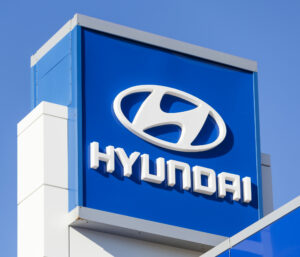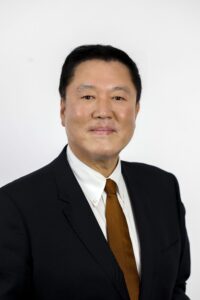
Hyundai hires new exec to help lead hydrogen initiatives
By onAnnouncements | Market Trends
As many automakers double down on electric vehicles (EVs), other OEMs including Hyundai are continuing to diversify their strategies by tapping into alternative fuels like hydrogen.
Hyundai revealed this week that it hired automotive veteran Jim Park to lead its North American hydrogen initiatives as its senior vice president of commercial vehicle and hydrogen business development.
“Hyundai is committed to accelerating the development of hydrogen technology as it provides a scalable zero-emissions solution for a variety of applications,” said José Muñoz, Hyundai North America’s president and CEO.
“Jim’s extensive career in automotive business development will help us build the team and obtain the tools and resources we need to continue our hydrogen expansion in North America.”

Jim Park
Park has more than three decades of experience in the automotive industry, having previously held leadership roles at Harman-Samsung and Chrysler.
He most recently served as Harman International Korea’s president, where he led strategies for its auto business units and Samsung’s automotive electric businesses.
His appointment came days after Hyundai hosted its 2023 CEO Investor Day in Seoul, South Korea to share its mid- to long-term business strategies and financial plans.
Hyundai spoke both about how it aims to boost its annual EV sales goal to 2 million units by 2030 while advancing plans for autonomous driving, software, robotics, and hydrogen.
The OEM in a press release described itself as the “global leader in commercializing hydrogen fuel cell electric vehicles.”
Hyundai said it plans to create an energy toolbox to produce hydrogen, manufacture steel without the use of fossil fuels, and decarbonize its work sites.
The Hyundai NEXO is among the few hydrogen-fuelled vehicles available on the market.
Toyota, whose Mirai model is powered by hydrogen, is also looking to step up its alternative fuels game. It said last week that it is looking to offer more hydrogen, mostly in its commercial vehicles, by 2030.
“To respond to the rapid changes in the market, we will establish a new organization called Hydrogen Factory in July, which will be able to make immediate decisions under one leader, from sales to development and production, all at once,” Toyota said. “The Hydrogen Factory will promote business on three axes.”
BMW and Honda are also working to develop hydrogen-fueled vehicles.
Last week, BMW and its partner, Garrett Motion, shared more details about the components behind the automaker’s BMW iX5 Hydrogen prototype.
Earlier this year, Honda executives shared the OEM’s ongoing hydrogen business initiatives.
The OEM wants to use fuel cell systems in fuel cell vehicles (FCEVs), commercial vehicles, stationary power stations, and construction machinery made by Honda and other companies.
Meanwhile, the Guangzhou Automobile Group Co. (GAC) has developed the world’s first ammonia-powered car engine, according to Bloomberg.
It shared its engine as part of its annual technology showcase and held a press conference to discuss the development.
“We’ve overcome the pain point of ammonia being difficult to burn quickly and put the fuel to use in the passenger car industry,” Qi Hongzhong, a GAC researcher, told reporters. “Its value to society and for commercial uses are worth anticipating.”
Image
Featured image credit: tomeng/iStock
Secondary image: Jim Park, senior vice president, commercial vehicle and hydrogen business development, Hyundai Motor North America/Courtesy of Hyundai
